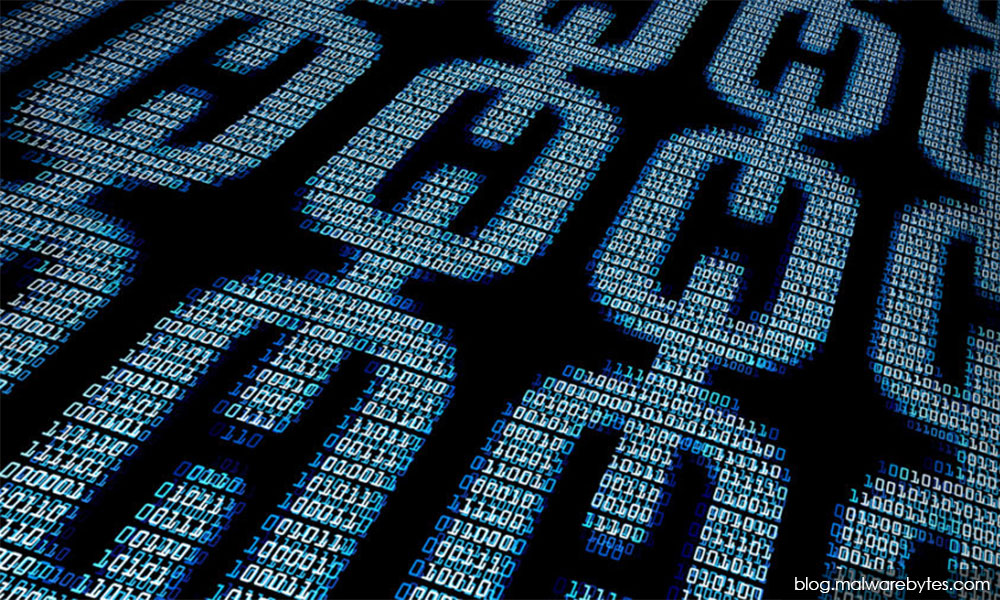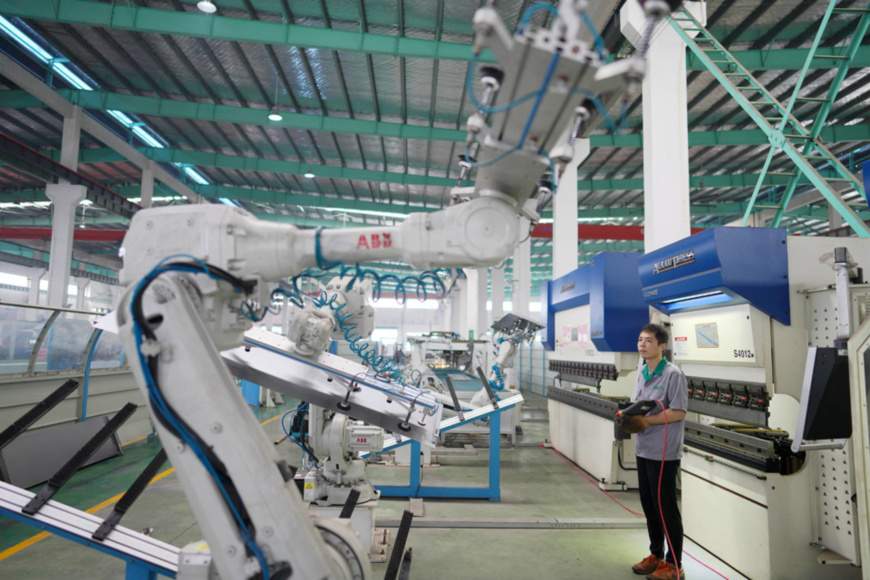
Published by PUON Tribune, Biztech.asia & @Halal, image from PUON Tribune.
Driven by the growing demand for halal products and services from the global Muslim population, this is the best time for Malaysia to step up its effort in promoting halal industry – as this can be one way to contribute to its gross exports,
Although the economy contracted by 17.1% in the second quarter (2Q20), gross exports appeared to be picking up – exports registered at RM82.9 bil in June (8.8% year-on-year), an improvement compared to the May figure of RM62.7 bil (-25.5% y-o-y).
As the global Muslim population is predicted to increase from 1.8 billion to 2.2 billion by 2030, it seems that Islamic economy will dominate the world economy in the upcoming years, with different sub-sectors like halal food and beverages, ingredients, cosmetics and pharmaceuticals, modest fashion and many more.
Thus, as exports have started to pick up starting June, it would be the right time to actively promote halal products and services.
Apart from fulfilling the Muslim consumer’s demands, the Islamic economy is also seen to attract non-Muslim customers and players as well. Indeed, this economy is no longer viewed from its religious point but is also a concept that embraces quality assurance and lifestyle choices.
As stated in the Global Islamic Economy 2019/20 report produced by DinarStandard, Malaysia remains the leader in the Global Islamic Economy Indicator (GIEI) and continues to strengthen its ecosystem for Islamic economy businesses.
Amazingly, Malaysia has become a global leader in numerous segments within the Islamic digital economy, having been identified as the top Muslim travel destination in the world, the largest Sukuk issuer in the world, the possessor of one of the world’s best halal standards, and leader in global Islamic finance and banking.
Owing to these achievements, Malaysia needs to invest and focus more on the halal economy so that we can maintain our position while working towards becoming the next most significant halal industry hub or player in the world.
Nowadays, concerns regarding health and halal matters are rising, especially now, amidst the Covid-19 pandemic. For instance, halal consumers are continually making inquiries on the raw material used to produce a product, ingredients used to make foods or make sure that the broiler is slaughtered with a certified team.
Technically, the lack of authenticity and inaccuracy is a big issue that can affect the integrity of the Halal supply chain. Due to this, it is crucial to implement a system that can support the transparency of the products’ whole value chain so that the reliability in the supply chain data can be achieved as well as improved the consumers’ trust level in the supply chain processes.
Blockchain the perfect solution
In the wake of this, blockchain technology is the current perfect solution for this.
By using blockchain technology, the consolidation of the different mediators along the supply chain to work as a single component can be provided. This is vital to preserve the integrity of these halal products.
It works by recording the halal movement of the halal product associated with related information like origin, destination, location and electronic seal ID. This record will reveal any fraud or manipulation along the way, and ensure that warehouses, transportation containers, storage of the halal products are regulated according to the halal standards and distinguished from the non-halal products.
This indeed is very beneficial, especially to our halal food economy, which is once a niche market but now booming worldwide. In fact, blockchain offers traceability that can speed up the whole halal certification process which usually takes months or years to be verified.
Apart from providing transparency, blockchain technology can also reduce the time needed in solving specific issues, which will then minimise the brand damage of halal-certified products. This is important in showing to the world that we can also run this economy efficiently, which is as good as the other reputable economies across the globe.
Nonetheless, although blockchain technology is not new, some people are still unaware of the importance and benefits of this technology. Thus, the halal industry players need to be educated with this tech and what it has to offer to their business model.
Another way that can be done is by coming up with our own halal trading house. A halal trading house functions as an exporter, importer and trader that purchases and sells products for other businesses.
Thus, with a halal trading house, it will provide specialised services that focus on halal-certified goods. For a start, according to Roziatul Akmam Osman, a Halal expert and professional, the government could form a consortium of established and reputable trading houses operating in Malaysia that are already providing their services to the halal sectors of the various industries operating here.
Besides, together with their international and domestic networks, each of these existing trading houses can leverage their expertise to promote effective and productive multi-industry upstream-downstream supply chains which are also sustainable and affordable.
Most significantly, there should be constant control of the partnership, so that no monopoly will occur.
Going forward, with the relaxation of the Movement Control Order and reopening of all sectors of the economy, now is the best time than ever for us to focus more on the Islamic economy. Not to mention with a touch of digital, the halal industry in Malaysia will thrive and propagate further for the benefits of all.
Nurafifah Mohammad Suhaimi is Research Assistant at EMIR Research, an independent think tank focused on strategic policy recommendations based on rigorous research.
Diterbitkan oleh Malaysiakini & Berita Harian, gambar daripada Malaysiakini.
Didorong oleh permintaan produk dan perkhidmatan halal yang semakin meningkat daripada populasi Muslim global, ini adalah masa terbaik bagi Malaysia untuk meningkatkan usaha dalam mempromosi industri ini.
Ia boleh menyumbang kepada eksport kasar Malaysia, yang merupakan salah satu komponen utama KDNK.
Walaupun ekonomi Malaysia menyusut 17.1% pada suku kedua tahun ini (2Q20), eksport kasar Malaysia nampaknya meningkat dengan terus mencatatkan peningkatan sebanyak RM82.9 bilion pada bulan Jun (8.8% tahun ke tahun), berbanding angka Mei iaitu sebanyak RM62.7 bilion (-25.5% tahun ke tahun).
Memandangkan populasi Muslim global diramalkan meningkat dari 1.8 bilion menjadi 2.2 bilion pada tahun 2030, ekonomi Islam akan menguasai ekonomi dunia pada tahun-tahun mendatang dengan subsektor yang berbeza seperti makanan dan minuman halal, bahan ramuan, kosmetik dan farmasi dan fesyen Muslimah.
Seperti yang dinyatakan dalam laporan Ekonomi Islam Global 2019/20 oleh DinarStandard, Malaysia kekal mengungguli carta dalam Petunjuk Ekonomi Islam Global dan terus memperkuat ekosistemnya untuk perniagaan ekonomi Islam.
Dengan itu, Malaysia perlu melabur dan lebih fokus pada ekonomi halal agar kita dapat mengekalkan kedudukan sambil terus berusaha untuk menjadi hab atau pemain industri halal yang paling penting di dunia.
Pada masa ini, kebimbangan mengenai masalah kesihatan dan halal semakin meningkat, terutama di saat-saat pandemik melanda.
Sebagai contoh, pengguna halal terus menerus membuat pertanyaan mengenai bahan mentah yang digunakan untuk menghasilkan produk, bahan yang digunakan untuk membuat makanan atau memastikan bahawa ayam daging disembelih oleh pasukan bertauliah.
Secara ringkas, ketidaksahihan dan ketidaktepatan adalah masalah besar yang boleh mempengaruhi integriti rantaian bekalan halal.
Oleh itu, sangat penting untuk menerapkan sistem yang dapat menyokong ketelusan rantai nilai keseluruhan produk halal sehingga kebolehpercayaan dalam data rantaian bekalan dapat dicapai.
Malah, tahap kepercayaan pengguna dalam proses rantaian bekalan akan meningkat.
Berikutan itu, teknologi blok rantai (blockchain) adalah penyelesaian terbaik untuk isu ini.
Teknologi blok rantai
Dengan menggunakan teknologi ini, penyatuan pengantara yang berbeza di sepanjang proses pengurusan rantaian bekalan dapat diketahui yang mana sangat penting bagi memelihara integriti produk halal.
Ia berfungsi dengan merekod maklumat pergerakan produk halal seperti destinasi, lokasi dan ID elektronik.
Rekod ini akan mendedahkan sebarang penipuan atau manipulasi yang terjadi, dan memastikan bahawa gudang, kontena pengangkutan, penyimpanan produk halal diurus mengikut piawaian halal dan tidak dicampur dengan produk bukan halal.

Ini sememangnya sangat bermanfaat, terutama bagi ekonomi makanan halal, yang dahulunya hanyalah pasaran khusus di Malaysia tetapi kini berkembang pesat ke seluruh dunia.
Malah, blok rantai menawarkan kebolehkesanan yang dapat mempercepat keseluruhan proses pensijilan halal, yang biasanya memerlukan beberapa bulan atau tahun untuk disahkan.
Selain itu, teknologi blok rantai juga dapat menyelesaikan masalah dengan lebih cepat, yang penting untuk tunjukkan kepada dunia bahawa kita dapat menjalankan ekonomi ini dengan cekap, sama seperti ekonomi terkemuka dunia lain.
Namun, walaupun teknologi blok rantai bukanlah sesuatu yang baharu, sebilangan individu masih tidak menyedari kepentingan dan faedah teknologi ini.
Jadi, pemain industri halal perlu didedahkan dengan teknologi ini dan apa yang ia boleh tawarkan kepada model perniagaan mereka.
Antara cara lain yang boleh dilakukan adalah dengan membina rumah dagangan halal kita sendiri.
Berfungsi sebagai pengeksport, pengimport dan pedagang yang membeli dan menjual produk untuk perniagaan lain, ia juga akan menyediakan perkhidmatan khusus yang tertumpu pada barang yang disahkan halal.
Sebagai permulaan, menurut Roziatul Akmam Osman, seorang pakar dan profesional halal, kerajaan boleh membentuk sebuah konsortium rumah dagang yang mapan dan bereputasi.
Rumah dagang ini haruslah sudah beroperasi di Malaysia dan telah memberikan perkhidmatan mereka kepada sektor halal dari pelbagai industri yang beroperasi di sini.
Selain itu, bersama dengan rangkaian antarabangsa dan domestik mereka, rumah dagangan yang ada boleh memanfaatkan kepakaran mereka untuk mempromosikan rantaian bekalan hulu-hilir pelbagai industri dengan lebih efektif dan produktif serta berpatutan.
Paling penting, kawalan berterusan terhadap perkongsian ini haruslah ada, supaya tiada monopoli berlaku.
Nurafifah Mohammad Suhaimi merupakan Pembantu Penyelidik di EMIR Research, sebuah organisasi pemikir bebas yang berfokuskan kepada pencernaan saranan-saranan dasar strategik berteraskan penyelidikan yang terperinci, konsisten dan menyeluruh.

